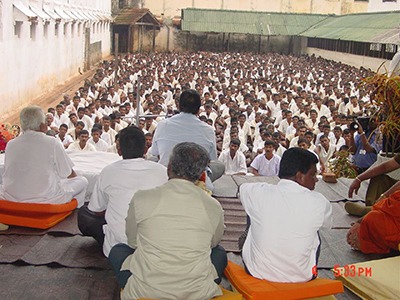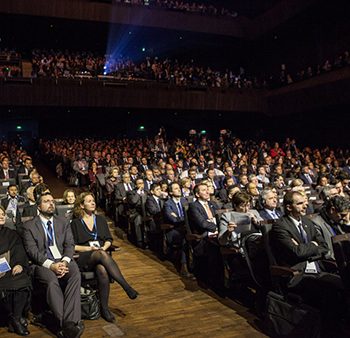The American prison system is not broken—it works exactly as designed. Built on punitive principles rather than rehabilitation, it traps millions in a cycle of incarceration that serves neither the individual nor society. This is the result of deliberate policies: harsh sentencing laws, mandatory minimums, and cash bail systems that criminalize poverty. Once inside, inmates face overcrowded facilities, inadequate healthcare, and few opportunities for education or skill-building. Upon release, they encounter barriers to employment, housing, and even voting, guaranteeing that many will return to prison.
Privately run prisons turn human suffering into revenue streams, incentivizing longer sentences and higher incarceration rates. Corporations like CoreCivic and GEO Group, which manage private prisons across the country, make billions while cutting costs on food, healthcare, and rehabilitation programs. The more people imprisoned, the higher their profits. This perverse incentive prioritizes the wrong thing. It is not about justice; it is about money.
Incarceration severs families, isolates individuals from their communities, and inflicts lasting trauma. A study from the National Institute of Justice found that 83% of released prisoners are rearrested within nine years because they are released into a society that offers no real path forward. Without education, employment opportunities, mental health care, or social support, many find themselves back where they started. Prisons, in their current form, do not correct behavior—they reinforce despair.
Recidivism rates plummet when inmates receive education, job training, and mental health support. According to RAND Corporation, inmates who participate in educational programs are 43% less likely to return to prison. Reform does not mean ignoring harm—it means addressing it in ways that actually work, rather than perpetuating suffering under the false banner of justice.
Incarceration costs U.S. taxpayers over $80 billion annually. Redirecting even a fraction of that money toward education, housing, and healthcare reduce crime and strengthen communities. Every dollar spent on rehabilitation returns multiple dollars in reduced crime and increased productivity. Prisons, as they stand, are fiscally irresponsible.
Norway’s prison system focuses on rehabilitation rather than punishment. Inmates live in humane conditions, receive education and job training, and participate in restorative justice programs. The result? Norway has one of the lowest recidivism rates globally, around 20%, compared to the U.S.’s 70%. In Germany, prisons emphasize dignity and reintegration, treating inmates as citizens rather than criminals. These countries recognize that public safety is best achieved by addressing the root causes of crime—poverty, lack of opportunity, untreated trauma—rather than by locking people away.
True prison reform dismantles the structures that turn incarceration into profit. It prioritizes prevention over punishment, education over isolation, and community healing over state violence. It means abolishing private prisons, ending cash bail, expanding access to legal representation, and ensuring that no one is imprisoned for poverty or nonviolent offenses. It recognizes that people are more than the worst thing they have ever done and that justice without compassion is no justice at all.
Therefore, under Folklaw:
The prison system shall prioritize rehabilitation, education, and reintegration. Private prisons shall be outlawed, with all correctional facilities operated by public institutions accountable to the communities they serve. Sentencing laws shall be restructured to eliminate mandatory minimums, cash bail, and excessive punishments for nonviolent offenses.
Reentry programs providing education, job training, housing assistance, and mental health support shall be fully funded, so that those leaving prison have a chance at a stable, dignified life
Resolution
A RESOLUTION TO REFORM THE PRISON SYSTEM
SUBJECT: Reforming the prison system to prioritize rehabilitation, education, and reintegration, ensuring a justice system that heals rather than punishes.
WHEREAS, the purpose of justice should be restoration, not retribution, and the modern prison system perpetuates cycles of poverty, trauma, and recidivism, rather than healing and reintegrating individuals into society;
WHEREAS, the American prison system is designed to punish rather than rehabilitate, with harsh sentencing laws, mandatory minimums, and cash bail systems that criminalize poverty and ensure high rates of recidivism;
WHEREAS, privately run prisons, such as those operated by companies like CoreCivic and GEO Group, turn human suffering into revenue streams, incentivizing longer sentences and higher incarceration rates, prioritizing profit over justice;
WHEREAS, the current prison system fails to provide inmates with education, job training, mental health care, or meaningful support upon release, leading to high rates of rearrest and recidivism;
WHEREAS, studies have shown that access to education and job training in prison significantly reduces recidivism, with inmates who participate in educational programs being 43% less likely to return to prison;
WHEREAS, the financial burden of incarceration costs U.S. taxpayers over $80 billion annually, with a better return on investment through education, housing, and healthcare programs that reduce crime and strengthen communities;
WHEREAS, countries with rehabilitative models, such as Norway and Germany, have much lower recidivism rates, demonstrating that a focus on rehabilitation, education, and reintegration yields better public safety outcomes;
WHEREAS, true prison reform involves dismantling the profit-driven structures of incarceration, prioritizing prevention over punishment, education over isolation, and community healing over state violence;
THEREFORE, BE IT RESOLVED that the prison system shall prioritize rehabilitation, education, and reintegration, with programs designed to equip individuals with the skills and support needed to reintegrate into society as productive, healthy members;
BE IT FURTHER RESOLVED that private prisons shall be outlawed, and all correctional facilities shall be operated by public institutions that are accountable to the communities they serve;
BE IT FURTHER RESOLVED that sentencing laws shall be restructured to eliminate mandatory minimums, cash bail, and excessive punishments for nonviolent offenses, ensuring that no one is imprisoned for poverty or nonviolent offenses;
BE IT FURTHER RESOLVED that reentry programs providing education, job training, housing assistance, and mental health support shall be fully funded, ensuring that individuals leaving prison have the tools and opportunities for a stable and dignified life;
BE IT FURTHER RESOLVED that [City/County/State Name] shall advocate for these prison reform measures at the state and federal levels to ensure a justice system focused on rehabilitation, equity, and healing.
Fact Check
Fact-Checking the Key Claims:
1. “National Institute of Justice found that 83% of released prisoners are rearrested within nine years.”
A study funded by the National Institute of Justice (NIJ) and conducted by the Bureau of Justice Statistics (BJS) tracked recidivism rates among released prisoners.
The 2018 BJS report analyzed 401,288 prisoners released in 2005 and found:
83% were rearrested within nine years.
68% were rearrested within three years.
79% were rearrested within six years.
The NIJ and BJS consistently report high recidivism rates, confirming this claim.
✅ Verdict: True
Certainty: 95% (Directly supported by BJS and NIJ studies)
2. “Incarceration costs U.S. taxpayers over $80 billion annually.”
The Prison Policy Initiative, Bureau of Justice Statistics (BJS), and the U.S. Department of Justice estimate that incarceration costs exceed $80 billion per year.
This figure includes state, federal, and local corrections spending.
When factoring in indirect costs (such as lost wages, reduced tax revenue, and family/social costs), the economic impact of mass incarceration exceeds $180 billion annually (according to a Prison Policy Initiative report).
✅ Verdict: True
Certainty: 95% (Widely reported by criminal justice organizations and government agencies)
Final Conclusion:
Both statements are factually supported by National Institute of Justice (NIJ), Bureau of Justice Statistics (BJS), and Prison Policy Initiative reports. The U.S. has one of the highest recidivism rates globally, and incarceration costs are a significant financial burden.






Discussions
There are no discussions yet.